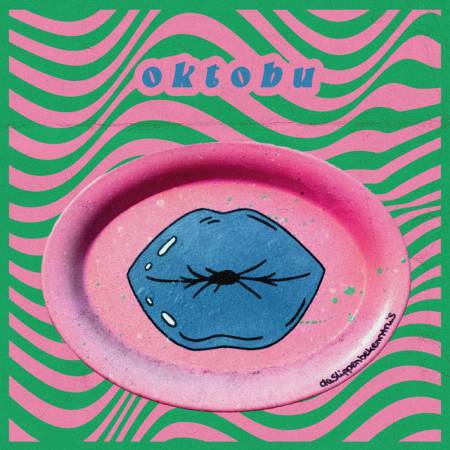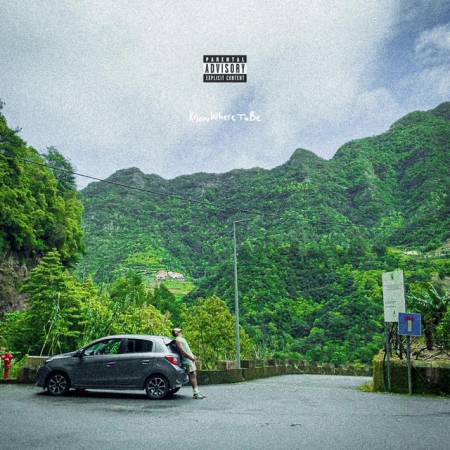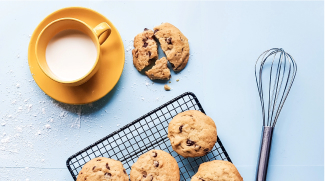I've been fascinated by the work of Ol' Burger Beats for years now. His approach and ability to dig the best samples out there and preserve the essence of old-school soul and jazz is a high mark in the boom-bap / instrumental hip hop, in my opinion.
Following his recent Jakarta Records releases - Dialogue. (a joint album with rapper Vuyo) and Monologue. (the beat version of the other release), I wanted to venture out into exploring the world of Ole and discover him as an artist beyond the beats. I hope you enjoy our talk and learn something new.
Hey Ole, Where do we find you today?
Right now I’m in my home studio in Oslo, I just got off work and had a lovely Ramen meal with my girlfriend Lisana.
What's one random fact about yourself that not many people actually know.
Stay up to date.
New music and exclusive updates in your inbox weekly.
I used to play football (soccer) at a semi-professional level in Ålesund. I was a striker actually! I gave it up when I started studying, but football was my main focus for most of my childhood.
Your parents are music teachers. Did they ignite your love for jazz and soul music?
Yes, I think my dad introduced me to those genres the most. My mother introduced me to some prog rock music as well, bands like Pink Floyd were often bumping in the car. Some of the albums they introduced me to are still my favorites, like Songs in the Key of Life by Stevie Wonder and Light As A Feather by Chick Corea. I played piano and alto saxophone growing up, and was introduced to a lot of music that way as well. I played Chick Corea, Jan Johansson, and Oscar Peterson scores on the piano, and we played songs by Stevie Wonder, Earth Wind & Fire, and Weather Report in the band where I played sax.
You play keys, drums, and bass, something I assume was fueled by your upbringing. Do you consider this as an advantage for a producer nowadays and do you view sampling as just another instrument at your disposal?
I don’t actually play drums or bass, in most of my songs those instruments are programmed. The bass is often played with a hardware synthesizer or an electric piano. But I think knowing how to play the keys is a big advantage for a hip hop producer. The piano gives you an understanding of pitch and chords and what key the music is in, and things like that are very useful when you’re composing or producing. But I do view the sampler as an instrument as well, I think it takes as much practice to master one of those as it takes to learn a classical instrument. And it was when I learned how to make songs by sampling that I really felt that I could express myself through music.
What was the feeling the first time you sampled an old record and do you remember which one it was?
I started off by sampling some of the records in my parents’ LP collection, as most beatmakers do. A couple of Barry White and Chet Baker records were among the first ones I think! I should’ve started by just looping a sample and let it run, but instead, I started off by chopping some difficult samples and trying to restructure them. I remember those first steps as really challenging, but it was a lot of fun once I got a hold of it.
There has been an ongoing discussion in the beat scene when it comes to pro and against sampling. Why do you think people waste time on such discussions. Isn't sampling a way to keep the history alive and make sure new generations are exposed to the world's greatest music?
I’ve seen those discussions as well, and it upsets me to be honest. Sampling is the essence of hip hop, so if you can’t respect that art form maybe you’re in the wrong genre. I also think that learning and acknowledging the history of this music is especially important if you’re a privileged white European «guest» in a traditionally black music genre like this is.
I see sampling as a time capsule, a way to bring back some of the music that was slept on when it was released, or that has been forgotten through the years. To me, it’s about paying tribute and learning from the greats, but sampling is also an incredible aesthetic, a great creative tool, and a way of art that I’m very passionate about. I only wish it was easier to clear samples properly, so it would be possible for independent artists to give something back to the actual originators in terms of both credit and royalties.
If you need to point the most impactful artist on your sound, who would that be and why?
I would say Madlib. There are a few good candidates amongst him and his peers, but Madlib is so inspiring in many ways: never compromising his style or sound, collaborating with some of the best rappers, owning and releasing his own music, continuously exploring different genres and expressions, reinventing himself year after year, always honoring the jazz and rock musicians that inspired him, his work-ethics seem second to none and his record collection must be incredible. And he made several of my favorite albums, the Quasimoto, Lootpack, Madvillainy and Jaylib projects to name a few.
Your Vuyo collaborative album Dialogue. is very politically charged. I love how both you and Vuyo have managed to pour your thoughts, experiences, and message via both the lyrics and instrumentals (samples). What's your favorite track on the record?
Thank you! There are many favorites. "Enough For You" means a lot since it was our first track as a duo, and it’s still one of our best ones I think. "We Made It" is also one of my favorites. I love how it captures the struggles of an independent musician. "Schengen Visa" is another favorite, and I love the music video that Grégory Sacré made for it. I really appreciate the honesty and straight-forwardness of a track like Conflict as well. I’ve never heard anyone rap about Norwegian racist politics like that before.
But honestly, I think this album is more about the experience of listening through the whole thing than it’s about the individual tracks. And I’m glad to see the listeners doing just that!
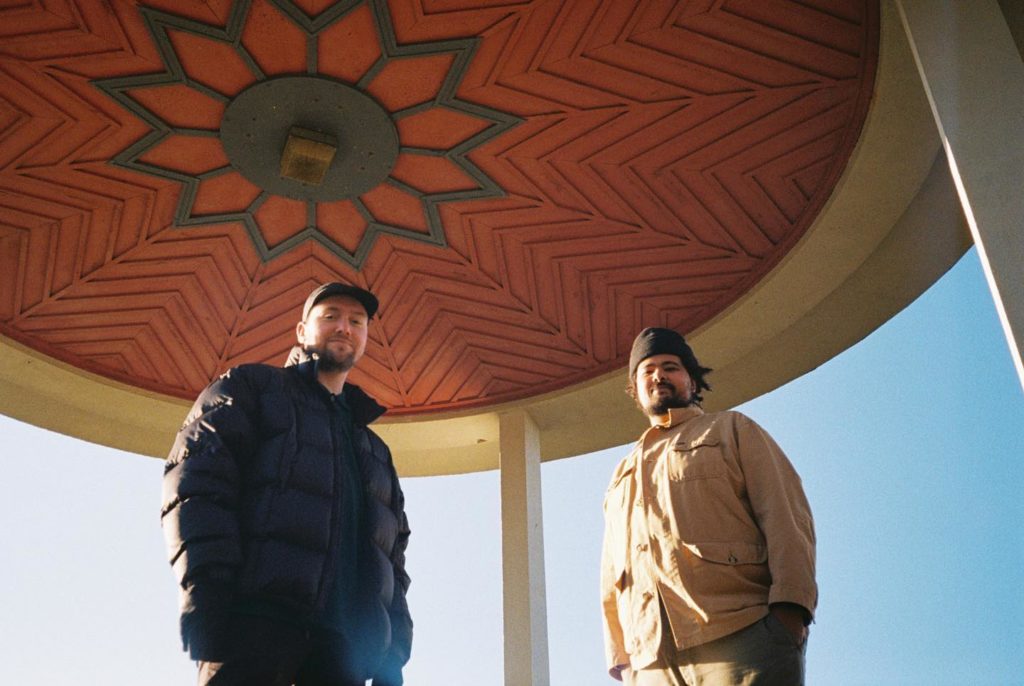
How did you approach the beatwork on the record? Did you read the lyrics first or was a give and take kind of process of work with Vuyo?
The beats were all made in my home studio in the span of 4-5 years. I compiled the ones that matched the album concept sonically and made a lot of new beats as the album started taking shape. I think the beat folder consisted of somewhere between 40 and 60 tracks, and Vuyo chose the ones that inspired him the most before he started writing. That spiritual jazz sound was there from the beginning, since "Enough For You" was the first track we made together. Vuyo wrote a few lyrics at his place, but he wrote most of it when we were at Stadion Studio together, where all of the vocals were recorded. Sure, it was a give-and-take process, and with twenty-something tracks, it was sometimes a challenging one, but as Vuyo wrote in the liner notes we’ve become brothers during the process.
I try to always put out the instrumental versions of my music, since there has been a high demand for my instrumental releases so far. I love listening to hip hop beats, hearing them without vocals sometimes brings out something different in an album. There’s a lot of subtle details there, things that are camouflaged by the vocals at times. Calling it Monologue was Vuyo’s idea. It’s what happens when you take out one part of the Dialogue. It’s a cool concept I think
I absolutely love the idea of releasing the instrumentals. How different this whole thing sounds to you without the rapping part?
I think it allows some of the beats to shine a little extra. Like the track Athens, which must be one of the best beats I ever made. Or Dusty Grooves, which should be well-received for fans of tracks like So They Say or Immaculate. Or hearing the Madlib and Dilla influence in We Made It. I also think it allows the interludes to be heard in a new way, I like the Club 7 beat as well as the Stanley Cowell tribute in Travelling Man. But I’m most proud of the vocal version, it feels like a classic CD-era hip hop album and it’s the most ambitious project both me and Vuyo has ever done.
The instrumental hip hop scene has been in steady growth and a lot more popular than 6-7 years ago. Why do you think that is?
Some of it is because of new technology and streaming habits I think. Making beats from home is easier than ever before, all you really need is a laptop (or an app on your phone), so I think there are more young hip hop beat makers because of that. I assume that the mood based playlists has a lot to do with it as well, I think that has introduced instrumental hip hop to the mainstream masses. But I’m not the biggest fan of that «beats to relax to» sound - I think music should challenge and awaken the listener too, not only make them forget that the sound is on.
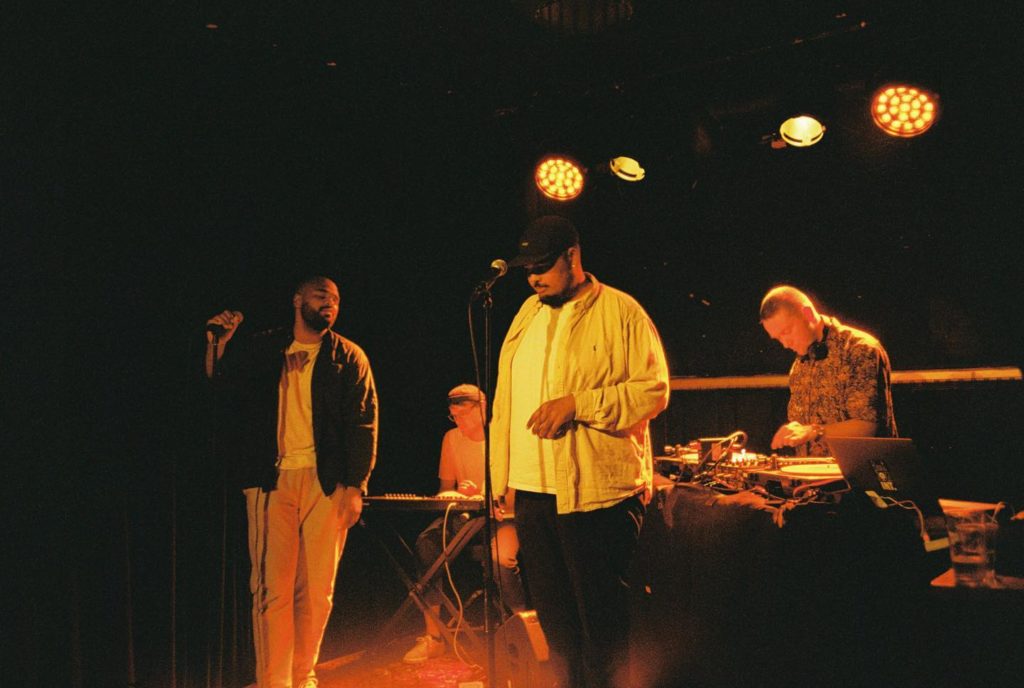
You've released with a few quite prominent labels, the latest of which Berlin's Jakarta Records who we respect a lot. In a day and age where artists have more and more tools at the palm of their hands, what should a label bring to the table and how can a team truly enhances the artist's craft.
I think a label can really help you out if you are new to the administrative side of releasing music. It’s also really helpful to have someone to discuss the release and plan it with. And if a label takes half of the profit, they should open a few doors, like Vuyo raps on "We Made It". It’s not impossible to do everything yourself, I’ve released around half of my albums on my own imprint. But you have to be prepared to do a lot of work, and if you’re into physical formats, you’ll have to spend some of your savings on that, not knowing if you’ll earn the money back.
What's on your playlist nowadays?
I’m always picking up used jazz records, so that’s what I’m listening to the most. A lot of Norwegian jazz from the 60s and 70s, and independent free and spiritual jazz, mostly American, from that same era. In terms of beats, I try to stay updated on the local producers here in Oslo, and compile the best of that scene here.
If you could ask yourself one question what would that be (and the respective answer to it)?
«Can I find your music on vinyl?» - Sure you can, dude! Get it at olburgerbeats.bandcamp.com.






